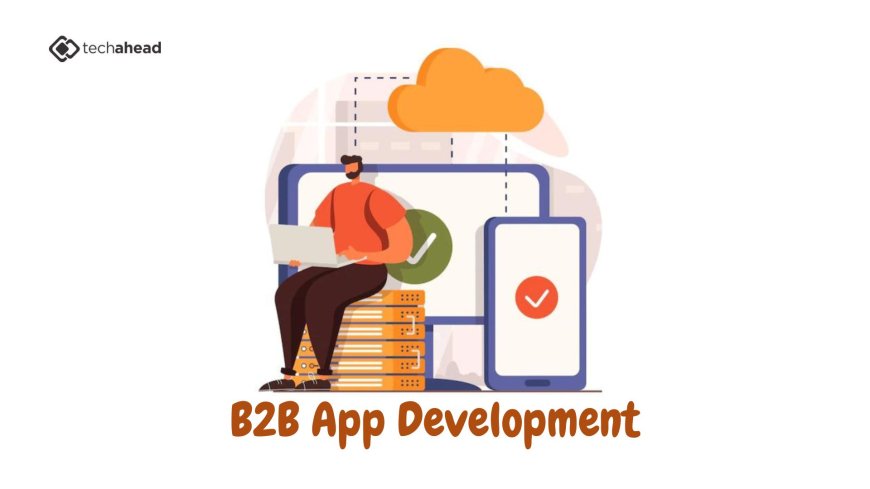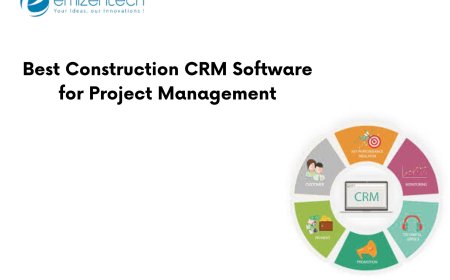The Real Reason B2B Companies Are Building Custom Apps (And Why You Should, Too)
Discover how businesses are leveraging SaaS application development to solve real-world problems, enhance operations, and drive innovation in today’s tech-driven landscape.

Its 2025, and lets be honestmost businesses still wrestle with outdated tools that dont fit how they work. If you're in a B2B space and still juggling spreadsheets, manually sending invoices, or losing hours to email threads, youre not just behindyoure losing money.
Thats exactly why B2B app development has exploded in relevance.
Were no longer talking about optional tech upgrades. Were talking about building apps that work the way your business worksapps that make day-to-day operations smoother, faster, and smarter.
B2B Software Isnt Just About FeaturesIts About Fit
You know your business better than anyone. Maybe you sell industrial components. Maybe you manage enterprise logistics. Or maybe youre in a specialized service industry with long sales cycles and even longer paperwork trails. Whatever the case, out-of-the-box software often doesnt cut it.
Thats where custom B2B apps come in. The real win? Youre building tools for your specific workflow,not someone else's. The result is better team adoption, fewer bottlenecks, and less wasted time.
Think about this: What if your sales team had a mobile app that synced perfectly with your CRM, generated quotes in seconds, and nudged leads forward automatically? Thats not just techthats productivity in your pocket.
Why SaaS-Based B2B Apps Work So Well
Now heres where things get smarter. When B2B companies invest in SaaS application development, theyre not just building appstheyre building scalable platforms.
A SaaS model means:
-
You dont have to install anything.
-
Your app runs on the cloud.
-
Your team can access it anywhere.
-
Updates and improvements happen automatically.
This isn't just convenientits strategic. It allows your business to grow without constantly reinventing your tech stack.
For example, imagine a procurement system that automatically adjusts vendor contracts based on changing inventory levelsand everyone on your team can access it whether they're in the office or working remotely. Thats real-time decision-making, made possible through SaaS.
What Makes a Good B2B App? Its Not What You Think
When people hear B2B app, they often imagine boring dashboards and clunky logins. But the best apps today are simple, beautiful, andmost importantlydesigned with the user in mind.
Heres what top-performing B2B apps tend to include:
-
Real-time communication: No more email chains. Think built-in messaging or alerts that matter.
-
Smart automation: Trigger actions like approvals or invoices without needing a human to click a button.
-
Data where you need it: Your numbers should work for you, not confuse you. Dashboards, reports, insightsdelivered clearly.
-
Access control: Keep things secure. Different roles, different access levels.
-
Integrations: It should talk to the tools you already useyour ERP, CRM, invoicing software, and even Slack.
The goal isnt to build something flashy. Its to build something that gets used every single day.
How B2B Apps Are Changing the Game
Lets not pretend this is just about speed or convenience. Whats really at stake is your companys competitive edge.
-
A manufacturing firm we worked with trimmed down quote turnaround time from 5 days to 24 hours using a custom B2B app.
-
A SaaS startup reduced churn by 32% just by creating a self-service portal that integrated with their backend.
-
A healthcare supplier automated all purchase approvals and saved over 400 man-hours per quarter.
These arent tech companiestheyre businesses using tech, especially through SaaS application development, to solve real-world problems. And theyre winning because of it.
So Should You Build One?
Heres the litmus test:
If your team is constantly making do with outdated systems or if you feel like your growth is being held back by internal complexity, then yesits time to build.
You dont need to go all-in on day one. Start small. Build a tool that solves one problem well. See how your team responds. Then iterate from there.
Because thats the beauty of modern B2B app developmentit grows with you.







































